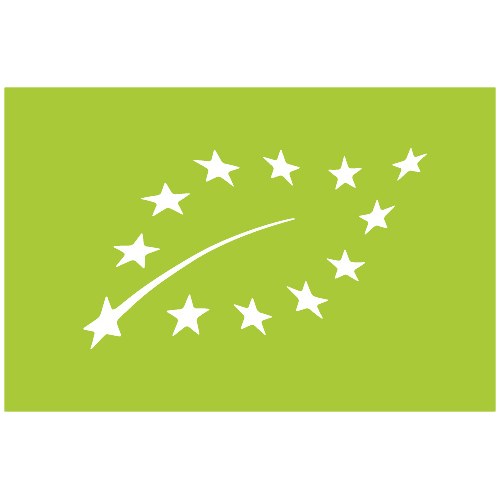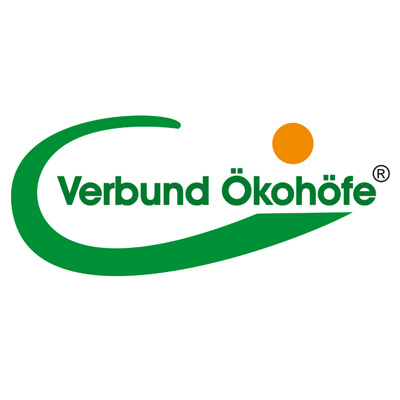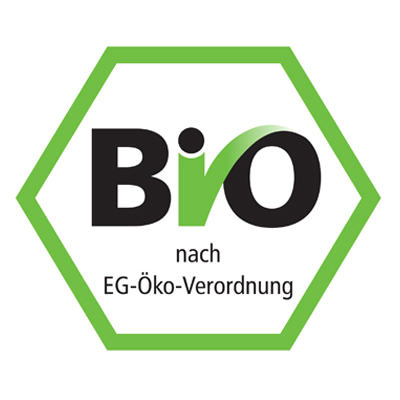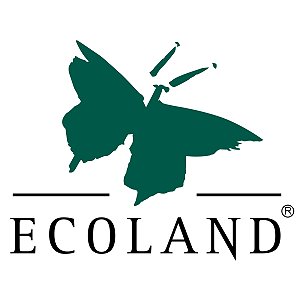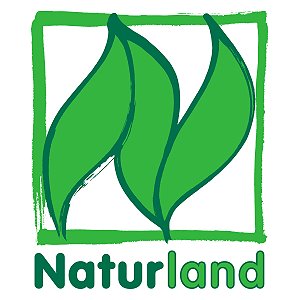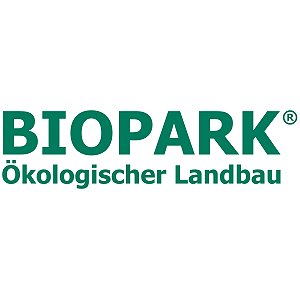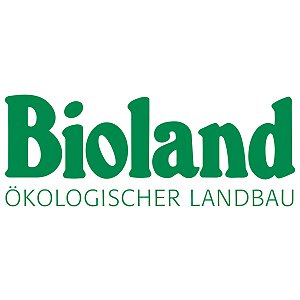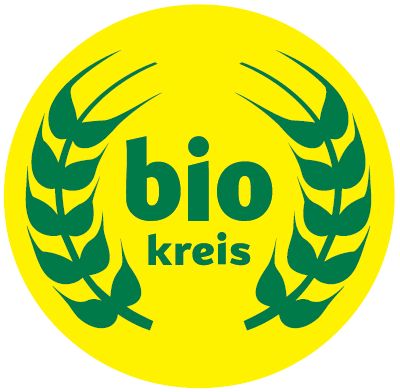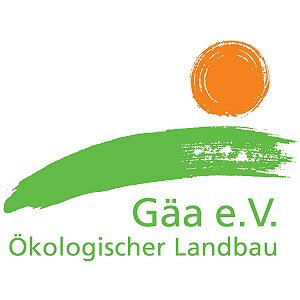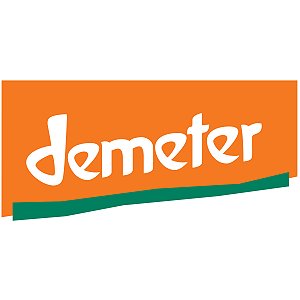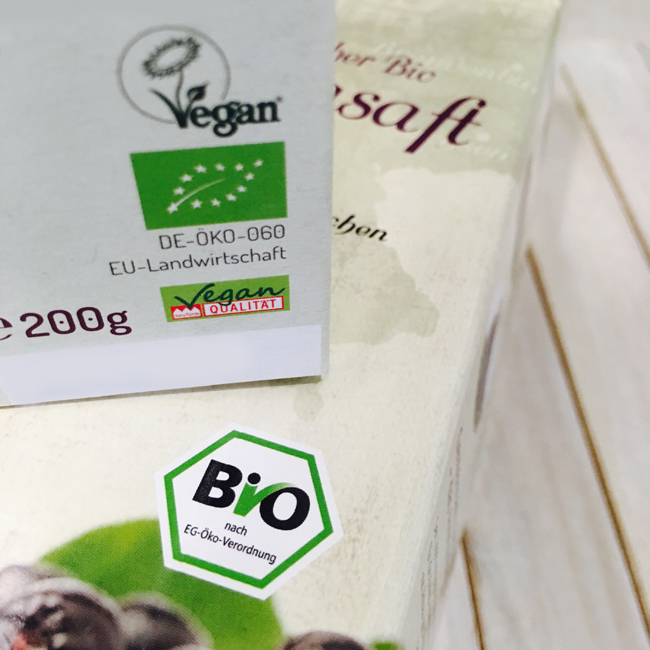
*Grown in a controlled organic environment – the ingredients of all organically certified products are signed like this. But what does it mean? The words “ecological agriculture, biological agriculture, organic agriculture, organic farming or alternative agriculture” are all used similarly frequently. All of them stand for the production of food and other agricultural products.
However, with special attention to, or on the basis of as nature-friendly methods as possible, which take into account the knowledge of ecology and environmental protection. Another feature of products from ecological agriculture is the exclusion of flavour enhancers, artificial aromas, colourings and preservatives.
What does controlled organic growing mean?
Conventional agriculture uses synthetic plant protection agents, mineral fertilizers and genetic engineering, the use of which ecological agriculture excludes. This is where the wheat is separated from the chaff, as the forest of logos of different certificates differs partially very sharply.
The following list will give you a small insight into the different logos and seals and their application (Source: bioprodukte.de http://bioprodukte.de/biosiegel)
The new organic label has been obligatory for all pre-packed organic foods since the 01st July, 2010. This means that all the organic products produced in Europe must be provided with an EU logo and must comply with the preconditions of the EU organic regulation. In contrast to the German organic label, which is voluntary, the above products must bear the logo of the EU organic label.
In the case of products signed by the EU organic label, significant attention is paid to the recognition value. A control code and the place of origin of different raw materials are placed beside the logo. It is distinguished between EU resources, non-EU resources and a mixed variant.
The producer can provide his products – in addition to the EU organic label – with the German organic label or labels of other organic associations.
The essential guideline says that the products may contain no more than 0.9% of genetically modified materials, and at least 95% of the contained agents must come from organic farming.
Die Richtlinien vieler deutscher Bio-Verbände sind wesentlich strenger als die der EU-Bio-Verordnung.
The guidelines of many German organic associations are significantly stricter than the EU organic regulation. The foods provided with the aforementioned logo are among products with a very high legally-ensured standard. This ensures a wide market and guarantees an identical quality to the consumers.
Further information about the organic label can be found: http://www.bio-siegel.de/
With the aim to make an overview of different organic signs easier for consumers, the German organic label, recognized by the state, was initiated in 2001. The organic farming sets high standards in sustainability, care of resources and environment. The feed and nutrients are supposed to come from the producer’s own farm to make a closed nutrient cycle.
The organic label can only be placed on the foods which are produced by organic farming pursuant to EU legal regulations, and which were additionally checked. This guarantees a unified standardisation in organic farming as well as species-appropriate animal husbandry. At least 95% of all the ingredients of the agricultural origin must come from organic farming. The end products can contain up to 47 additives, including pickling salt, among other things. In contrast to the EO organic label, which is obligatory, the German organic label is used by growers and producers on a voluntary basis.
The organic farms are inspected by government-approved private inspection bodies, and they have to keep records about all operational equipment and grown products. Furthermore, unannounced inspection can be carried out anytime. Not only the growers, but also the processing and import plants must undergo strict inspections. The products provided with the label must include the code number of the competent organic inspection body.
Further information about the organic label can be found at: http://www.bio-siegel.de/
Bioland is one of the leading organic-food associations in Germany. The work of the association is based on an organic-biological cycle farming with the exclusion of synthetic pesticides and chemical-synthetic nitrogen fertilizers. The sustainable and environment-friendly production of foods includes, of course, the species-appropriate animal-rearing and careful processing of the foods.
Bioland standards far exceed the directives of the EC organic regulation in most cases. The standards for Bioland growers and producers are regularly checked by government-approved inspection bodies, which ensures that the application of the Bioland label is permanently correct and permitted.
The Bioland farmers with animal husbandry, butchers and meat-processing plants are strictly checked every year, and it must be clearly declared what exactly is inside the products on all meat and salami products. The Bioland animals are only fed in an organic way. Plants grown exclusively without chemical additives are the primary nutrition. Even the cultivation of cereals and the production of bread are subject to very strict directives. The top priority in all the production sectors is to adhere to the Bioland standards and to operate an environment-friendly and sustainable agriculture, with the exclusion of genetic engineering.
Further information about the organic label can be found at: http://bioland.de
The multi-faceted and internationally recognised organic association Gäa was founded in Dresden in 1989. It crucially promoted the formation of organic farming, especially in East Germany. The focus of Gäa´s work is on the care of landscape and environment protection. Its directives are among the strictest in Germany and they are checked by EU-approved inspection bodies.
Gäa´s major goal is the preservation and increase of soil fertility, species of plants and breeds of animals. Landscapes are supposed to be diverse, with wetlands, groves and varied wild-herb and green areas. Furthermore, the clearing of primary forests is in principle not allowed. The species of agricultural plants are to be grown, stored and processed in a diverse and organic way.The standards for the protection of groundwater and the exclusion of chemical-synthetic fertilizers, plant protecting agents, and genetically modified additives, are especially worth mentioning.
The focus of Gäa´s standards and directives in the field of animal husbandry is on the species-appropriate animal husbandry and feeding. Special attention is paid to the protection of resources and the transparent course of growing and production, up to the sale.
Further information about the organic label can be found at: http://gaea.de/
The guiding policy of the Demeter international organic mark is focused on the oldest organic form of land cultivation. Due to the consequent enforcement of directives and the development of the method of farming, the biodynamic land cultivation has become the most sustainable form of its kind. At the same time, Demeter is the only organic food association that prescribes animal husbandry.
As a biodynamic form of farming, Demeter views the task of letting the layer of humus permanently grow in the soil. Independent research works have documented that higher amounts of carbon dioxide are bound in humus, which acts against the green-house effect. The fertility of soil plays a key role in Demeter´s thinking and activities. This is supported by their own productions from medical herbs, dung and minerals. Furthermore, the above agents have a balancing and harmonizing effect on the growth of plants.
The species-appropriate animal husbandry at Demeter farmsteads ensures that the animal dung is used as a valuable fertilizer for agriculture. The Demeter animal husbandry presupposes 100% organic feed, complementary treatment of diseases and – as a matter of course – protection of animals.
The EU organic regulation currently permits about 40 controversial additives, which Demeter does not use. Plants with the Demeter label are strictly checked every year and Demeter farmers and producers achieve more than prescribed by the EU organic regulation.
Further information about the organic label can be found at: http://demeter.de
Since Naturland was founded in 1982, the association has been working on its high demands for the organic food production. In addition, Naturland is engaged in textile production, cosmetics and the use of forests.
Through the production, processing and sale of healthy organic foods and organic products with guaranteed high quality, Naturland accepts a high responsibility for the coming generations. The transparent methods of work guarantee consumers the safety of the purchased organic products. The standards are higher and stricter than the demands of the ES organic regulation. All the guidelines are valid for the producer as well as for the processing of all the products, and they are regularly inspected by independent bodies. The directives are based on a complete system-oriented observation and must be respected by the growers up to the sale of the products in shops.
Naturland works with a holistic approach, sustainable farming, practicing nature and environmental protection, as well as the safeguarding of air, soil and water. Furthermore, Naturland intensively works in the branch of the organic use of forests and the aqua culture. Naturland´s top priority in all work and grower´s sectors is the organic competence and the social responsibility, all without the use of genetic engineering.
Further information about the organic label can be found at: http://www.naturland.de/
The organic food association was founded in 2007, and its work is aimed at the new federal states. The focus of all activities is on “social agriculture and a peasant form of faming”. This especially includes the growing and processing of high-quality foods. All the plants managed by the association adhere to species-appropriate animal husbandry, environmental protection and simultaneous productivity – from the sowing, or keeping and breeding of young animals, to the processing and sale.
In many cases, the association standards of eco-farms exceed the directives of the EU organic regulation. There are far-reaching provisions to be adhered to by growers and processors, which are completely ensured through inspections and corresponding certifications. The application of genetic engineering is fully rejected, and is not part of the philosophy of the eco-farms.
The use of nano-technology is also forbidden in the association. Moreover, a certified plant must be farmed completely in accordance with the directives of the association of eco-farms to be able to comply with the provisions. The growing of plants, animal husbandry and food processing are strictly defined in the preconditions of the directives. Among other things, the dehorning and the use of tethers for ruminant animals, as well as the use of formaldehyde as a disinfectant, are forbidden. In addition, the directives also contain the sections for bee keeping, plant propagation and mushroom growing.
Further information about the organic label can be found at: http://www.verbund-oekohoefe.de/
The top priority of the organic food association founded in 1997 is practical relevance. The farmers, peasants and growers are to strengthen their work, their interconnection with their region and their social engagement with respect to healthy foods. Organic farming is the most environmental-friendly kind of farming.
It is mentioned in the directives that the grower supports the agriculture and diversity of species in his region. This happens, for example, through the creation of nesting places for birds, and the growing of rare cultural plants. The fertility of soil must be maintained and water-saving irrigation systems must be established. Chemical pesticides and synthetic fertilizers may not be used. Ecoland farms do important work for the protection of nature.
Ecoland also certifies the growers of biodynamically and organically grown and produced herbs and spices. High-quality products are made in 4 different climatic zones worldwide for fair prices and under social work conditions.
All the organic farmers with the Ecoland certificate are regularly inspected by government-approved inspection bodies. The strict Ecoland directives, which exceed those of the EU organic regulation, ensure that the consumer purchases high-quality, healthy and genuine organic foods of a regional origin.
Further information about the organic label can be found at: http://www.ecoland.de/
Engaged farmers and scientists founded the Biopark association with its seat in Güstrow in Mecklenburg-Western Pomerania in 1991. Today, the association is represented in 15 federal states. In addition to the promotion of soil fertility through the use of its own fertilizers, and the resulting diversified rotation of crops, Biopark pays big attention to the exclusion of chemical-synthetic agents and genetically modified organisms. Many of the Biopark growers even cultivate areas in nature reserves.
In the case of animal husbandry, Biopark promotes species-appropriate animal husbandry, large open-air and grazing areas and its own feed.
The directives are inspected and developed by a directive commission. Here the association cooperates closely with NABU, the federal government and freelance experts. In several points, the standard is stricter than that of the ES organic regulation. The Biopark growers are regularly checked so that the consumers get an identically high and guaranteed quality.
Further information about the organic label can be found at: http://biopark.de
Founded as early as in 1979 in Passau, the Biokreis organic-food association with its organic label is the fourth biggest in Germany. The core of its work is based on the support of organic farming. The association brings together organically working farmers and consumers. Within the membership, consumers can support the next development of the “Biokreis” label. No matter what field you look at, regionality is always the central point. The point is that a farmer with his processing close to the farm produces good organic products, and he can offer them to nutrition-conscious people. With the philosophy that a farmer can earn his livelihood with his work, Biokreis supports the work with the public and contributes to the education of the consumers.
All the foods certified with the Biokreis label meet the high demands of the directives of the association. These are far beyond the minimum demands of the EU organic regulation. In this way, extraordinary high-quality organic foods can be made. The farmers must undergo strict inspections of the label every year. The organic logo and label are only valid for one year. This can guarantee that the standard is reached and the quality remains equal. There are extraordinarily strict standards for animal feed. For example, only feed from Biokreis plants and Biokreis members may be used.
Further information about organic label: http://biokreis.de/
Certification Process
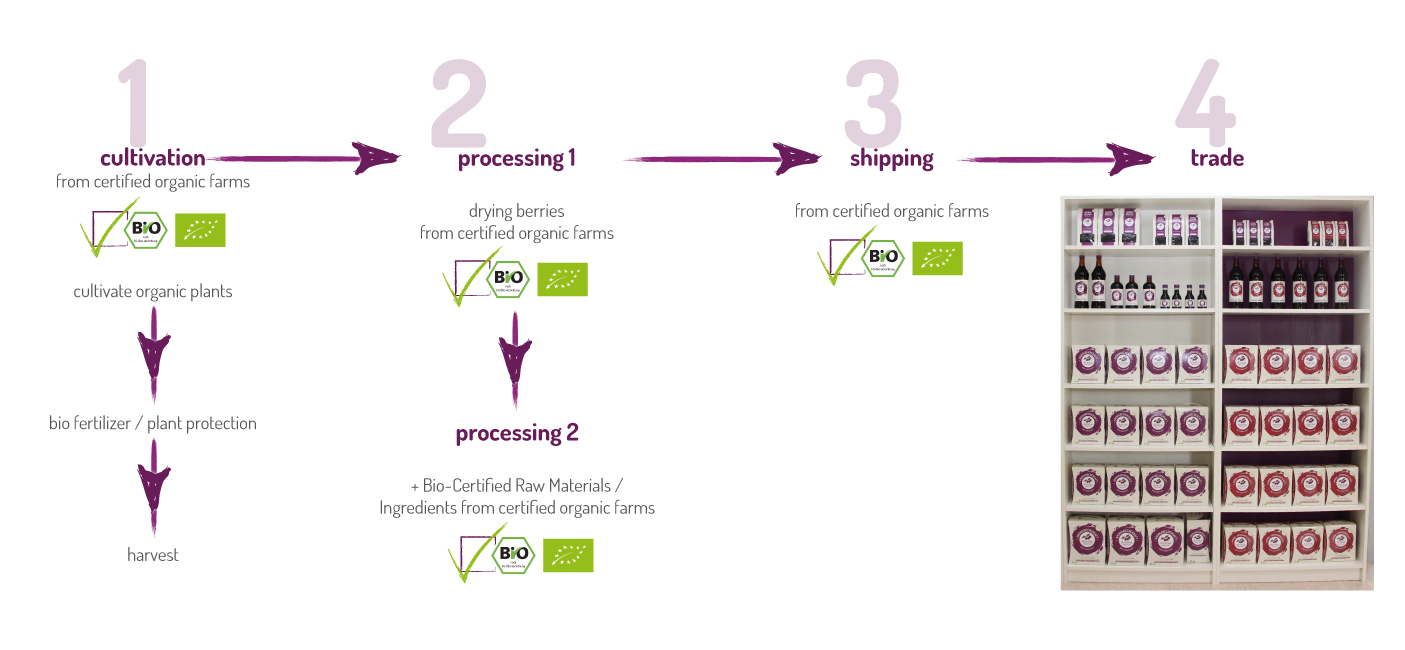
In harmony with nature – selected products in demeter quality
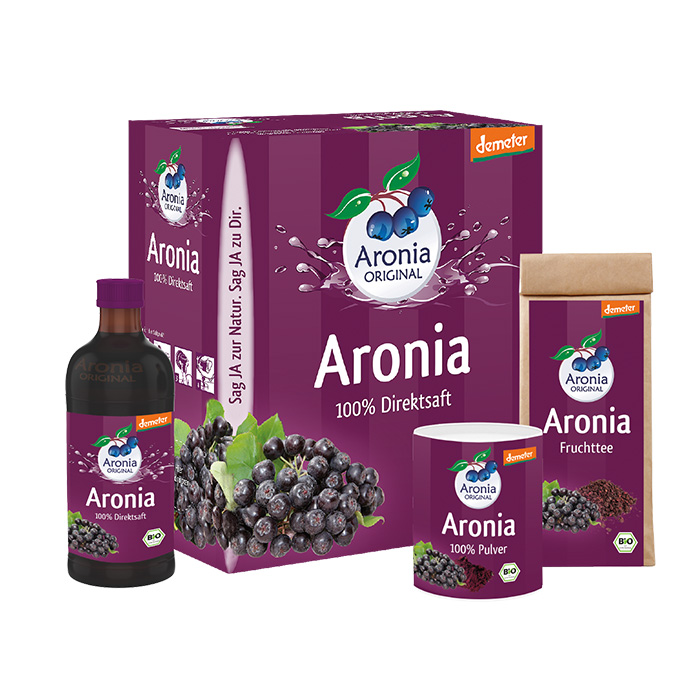
In October 2017 we brought a demeter product collection into the specialised trade for the first time. The strict demeter guidelines stand for premium organic products of highest quality. The berries for our demeter products come from our long-standing exclusive partner Michael Görnitz “Bioobst Görnitz GmbH & Co. KG”. At the cycle path along the river Elbe in Coswig, Saxony, demeter Aronia berries are grown on 64 hectares in Aronia ORIGINAL quality. To this range belongs the Aronia juice in two different packaging sizes, the Aronia berry powder as well as the Aronia tea. Enjoy!
